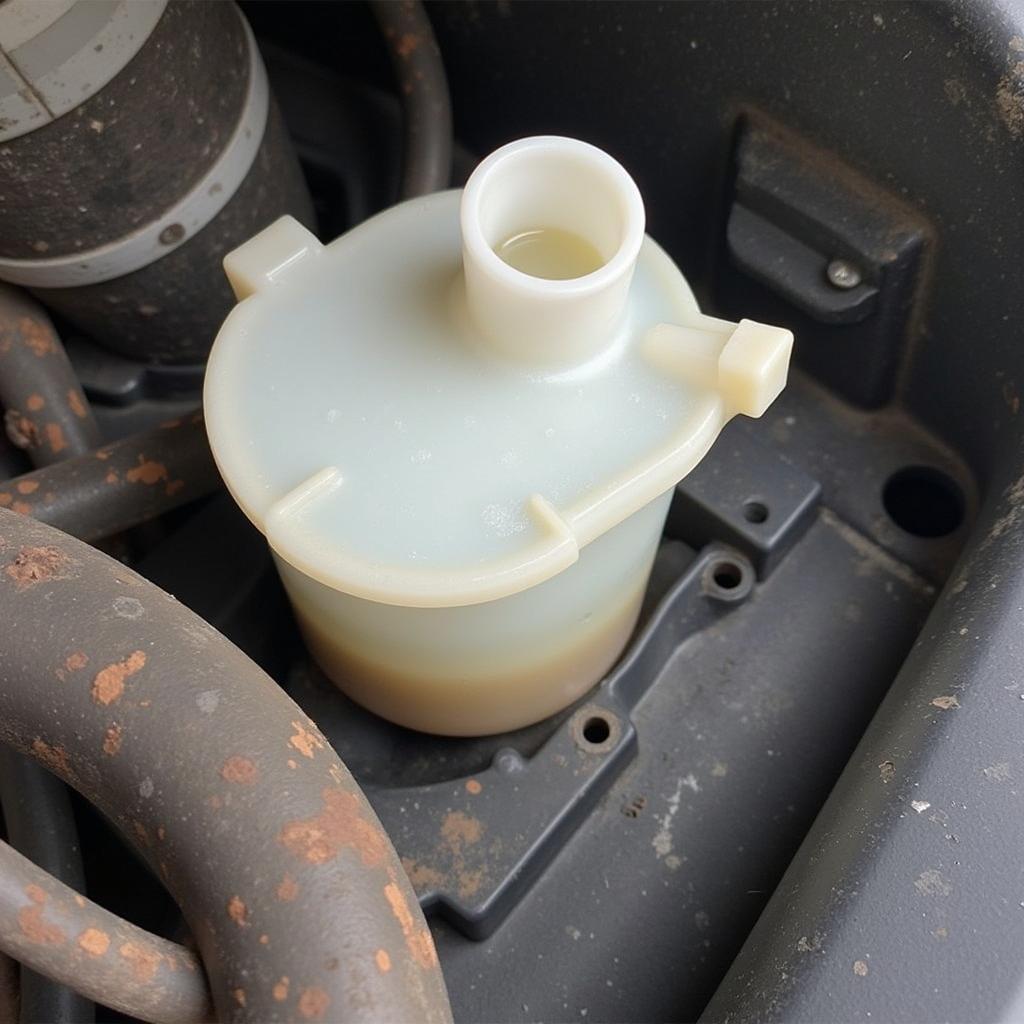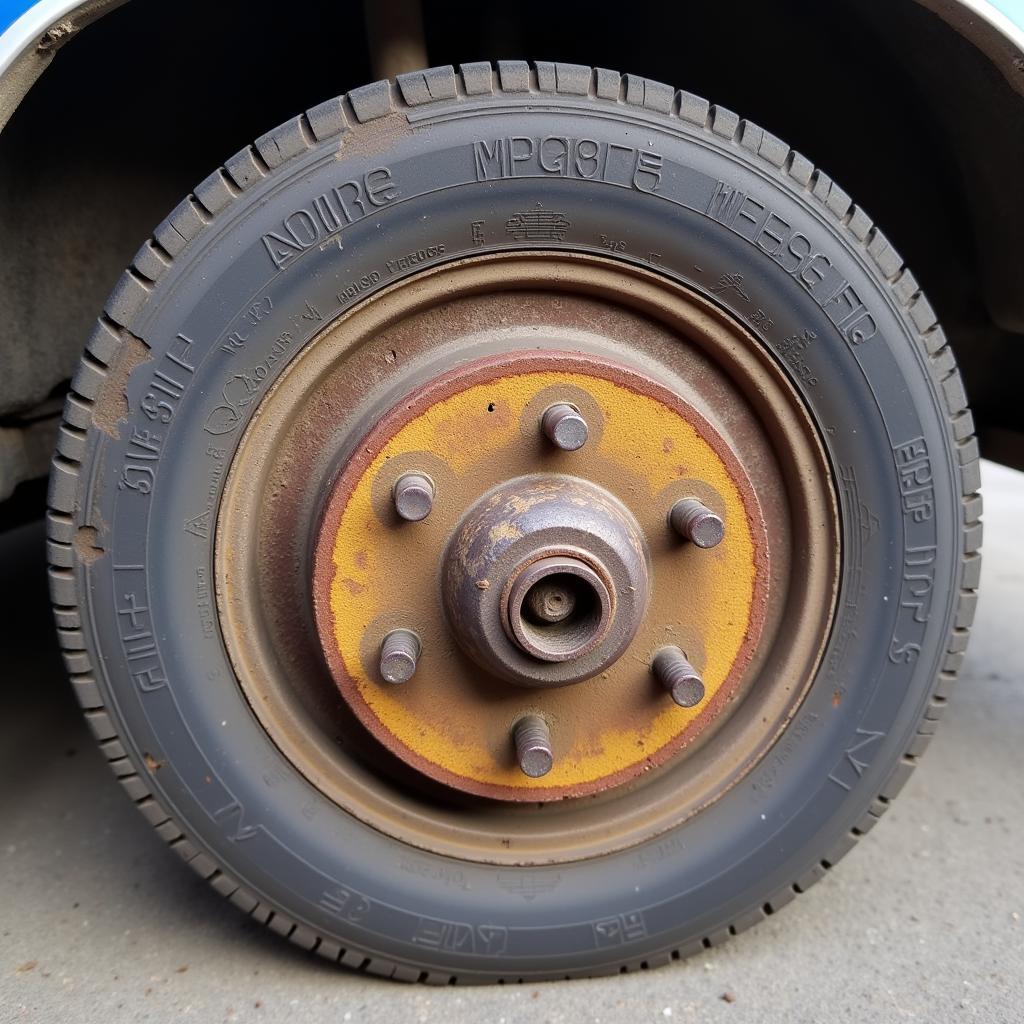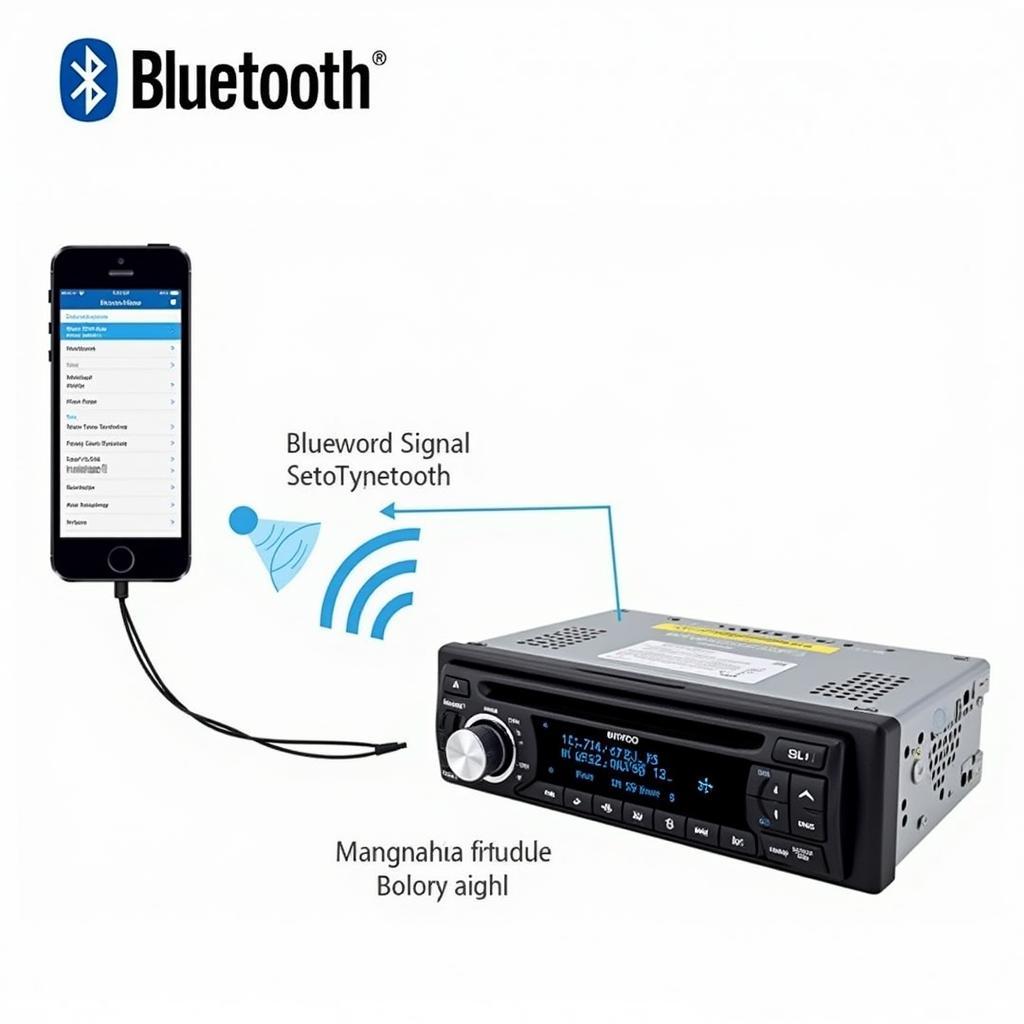The brake warning light on your dashboard is a crucial safety indicator. When it illuminates on your 1988 Grand Marquis, it’s a signal that something within your braking system requires attention. Ignoring this warning could lead to decreased braking performance and potentially dangerous situations. This comprehensive guide will walk you through common causes for the brake warning light on an 88 Grand Marquis and provide steps to diagnose and potentially fix the issue.
Understanding Your Brake Warning Light
Before diving into troubleshooting, it’s important to understand what triggers the brake warning light. In your 1988 Grand Marquis, this light serves two primary functions:
-
Parking Brake Engaged: The most common reason for the light is simply that your parking brake isn’t fully disengaged. Always double-check this first.
-
Brake System Issue: If the parking brake is released and the light remains on, it indicates a problem within your braking system. This could be due to low brake fluid, a faulty brake light switch, or problems with components like the master cylinder, calipers, or brake lines.
Common Causes and Solutions
Let’s explore some frequent culprits behind a brake warning light on an 88 Grand Marquis:
1. Low Brake Fluid
 Low Brake Fluid Reservoir
Low Brake Fluid Reservoir
Low brake fluid is often the primary reason for an illuminated brake warning light. Brake fluid is the lifeblood of your hydraulic braking system. Over time, brake pads wear down, and this wear can result in a lower fluid level in the reservoir.
Solution:
- Check the brake fluid level: Locate the brake fluid reservoir, typically a translucent container with a “Min” and “Max” marking. If the fluid is below the “Min” line, it needs to be topped up.
- Add the correct brake fluid: Refer to your owner’s manual for the recommended brake fluid type for your 1988 Grand Marquis. Use a funnel to carefully pour the fluid into the reservoir, being cautious not to overfill.
- Inspect for leaks: If the fluid level is consistently low, you likely have a leak. Thoroughly check brake lines, connections, and the master cylinder for any signs of fluid seepage. Addressing leaks often requires professional assistance.
2. Faulty Brake Light Switch
The brake light switch, positioned near the brake pedal, plays a vital role in activating your brake lights when the pedal is depressed. A malfunctioning brake light switch can not only prevent your brake lights from illuminating but also trigger the brake warning light.
Solution:
- Test your brake lights: Have someone press the brake pedal while you check if the brake lights are working. If they aren’t, it’s a strong indication of a faulty brake light switch.
- Replacement: Replacing the brake light switch is a relatively straightforward task. Consult a repair manual or seek professional help if you’re not comfortable with basic car repairs.
3. Worn Brake Pads
 Worn Brake Pads on Grand Marquis
Worn Brake Pads on Grand Marquis
Worn brake pads are another common cause of a brake warning light. Most 88 Grand Marquis models are equipped with wear indicators that trigger the warning light when the pads reach a certain level of wear.
Solution:
- Inspect your brake pads: Checking brake pad thickness requires removing a wheel to visually inspect the pads. If you’re not comfortable with this, a mechanic can quickly assess their condition.
- Replace worn pads: If the brake pads are thin or worn down to the wear indicators, it’s crucial to replace them immediately. Driving with severely worn pads significantly reduces braking effectiveness and can damage your rotors.
4. Malfunctioning ABS System
If your 1988 Grand Marquis is equipped with an Anti-lock Braking System (ABS), a malfunctioning ABS module or sensor can trigger the brake warning light.
Solution:
- Seek professional diagnostics: Diagnosing ABS issues requires specialized equipment. It’s best to take your vehicle to a trusted mechanic specializing in 88 Grand Marquis models or to a dealership service center for proper diagnosis and repair.
Additional Considerations
- Master Cylinder: The master cylinder is a critical component of your braking system. Leaks or internal failures within the master cylinder can lead to a loss of brake pressure and trigger the warning light.
- Brake Lines and Hoses: Inspect your brake lines and hoses for any signs of damage, cracks, or leaks. These flexible lines can deteriorate over time, leading to brake fluid loss.
Conclusion
Addressing a brake warning light on your 1988 Grand Marquis is not something to postpone. Your braking system is essential for your safety and the safety of others on the road. By understanding the common causes and following the troubleshooting steps outlined in this guide, you can take the right steps to diagnose and potentially fix the issue. Remember, if you’re uncertain about any aspect of brake repair, it’s always best to err on the side of caution and consult a qualified mechanic.


